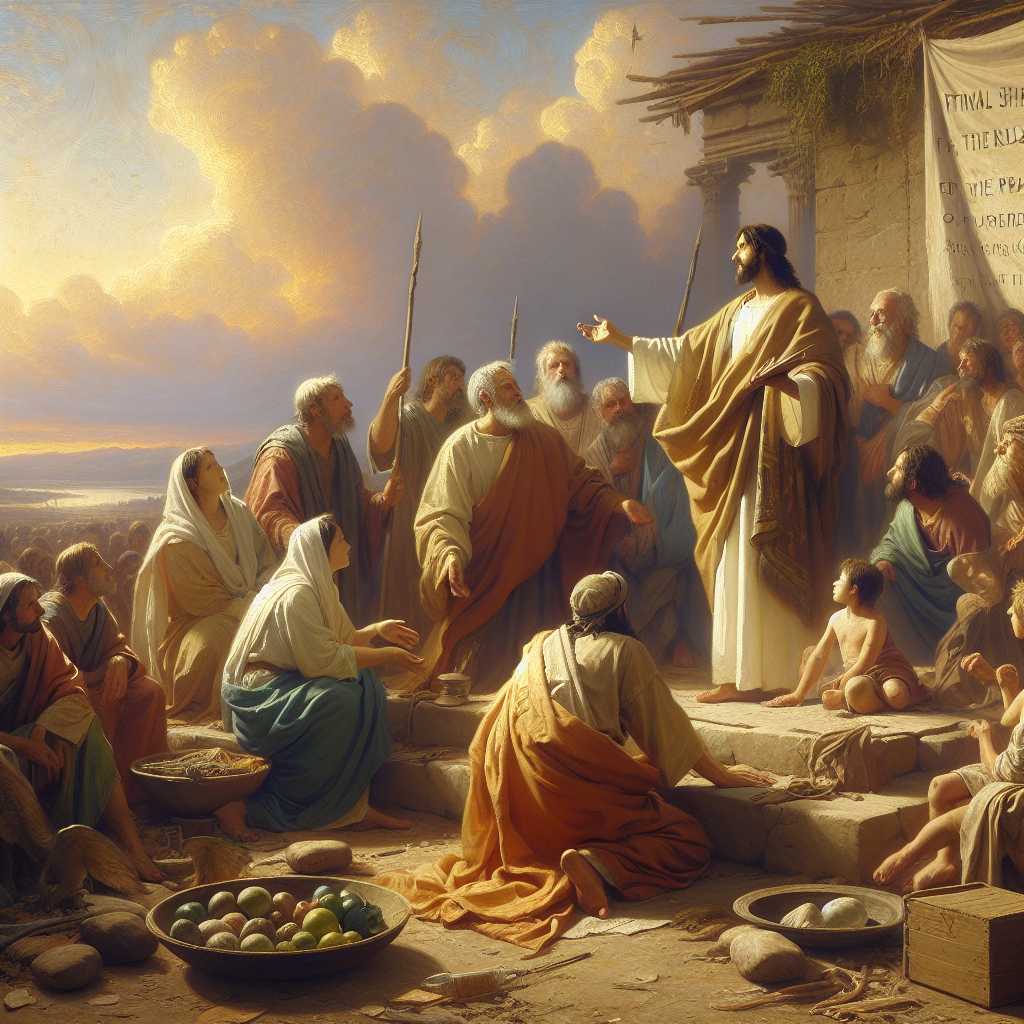Understanding Matthew 25:31-46: Themes, Context, and Practical Application

Analysis of Matthew 25
Key Verses
- Matthew 25:31: "When the Son of Man comes in his glory, and all the angels with him, he will sit on his glorious throne."
- Matthew 25:40: "The King will reply, 'Truly I tell you, whatever you did for one of the least of these brothers and sisters of mine, you did for me.'"
- Matthew 25:21: "His master replied, 'Well done, good and faithful servant! You have been faithful with a few things; I will put you in charge of many things. Come and share your master's happiness!'"
Themes
- Final Judgment: Matthew 25 discusses the final judgment where Jesus, as the Son of Man, will separate the righteous from the wicked, symbolized by sheep and goats.
- Kingdom of God: The chapter emphasizes the kingdom of God and the eternal life promised to the righteous who demonstrate their faith through actions.
- Compassion and Service: The importance of compassion and serving others, particularly the marginalized, is highlighted as a reflection of one's faith and love for Christ.
Historical Context
- Time Period: Likely written between AD 80-90, during a time when the early Christian community was forming its identity separate from Judaism.
- Political Climate: Roman rule was prevalent, with increasing tensions between Jews and Christians, influencing the themes of judgment and separation.
- Significant Events: The ministry of Jesus and the early Christian movement were pivotal, with an emphasis on living in anticipation of the final judgment.
Cultural Context
- Jewish Customs: Reflects Jewish eschatological expectations of the Messiah as a judge and king.
- Social Structures: The chapter underscores the early Christian community's emphasis on caring for the poor, imprisoned, and marginalized, aligning with Jewish teachings on charity and justice.
Etymology
- "Least of These" (Greek: ἐλαχίστων, elachistōn): Refers to the most vulnerable and marginalized members of society, emphasizing the importance of caring for fellow Christians and others in need.
- "Brothers and Sisters" (Greek: ἀδελφοί, adelphoi): Highlights the familial bond within the Christian community, urging believers to treat each other with love and respect.
Put it into Practice
- Compassionate Living: Actively show kindness and compassion to those in need, recognizing that serving others equates to serving Christ.
- Supporting Fellow Believers: Prioritize providing for the needs of fellow Christians, especially those who are marginalized or persecuted.
- Reflecting God's Love: Demonstrate God's love through tangible acts of kindness, thereby manifesting His love for humanity.
Questions
- How does understanding the final judgment influence your daily life and priorities?
- What does it mean to serve the "least of these" in your context, and how can you incorporate this into your daily routine?
- How can you apply the principles of compassion and service to your relationships and community to reflect Christ's love?
Reflecting on these questions can lead to personal growth, spiritual development, and a deeper understanding of the text, encouraging believers to live out their faith in practical and meaningful ways.